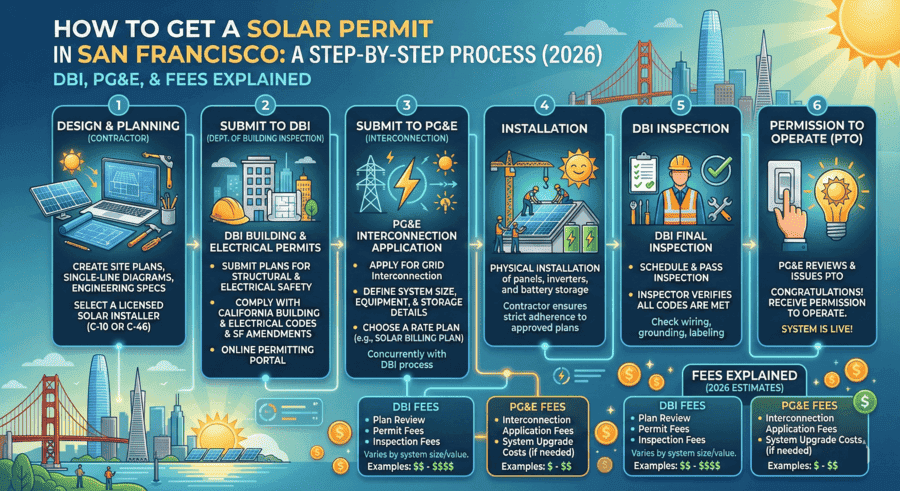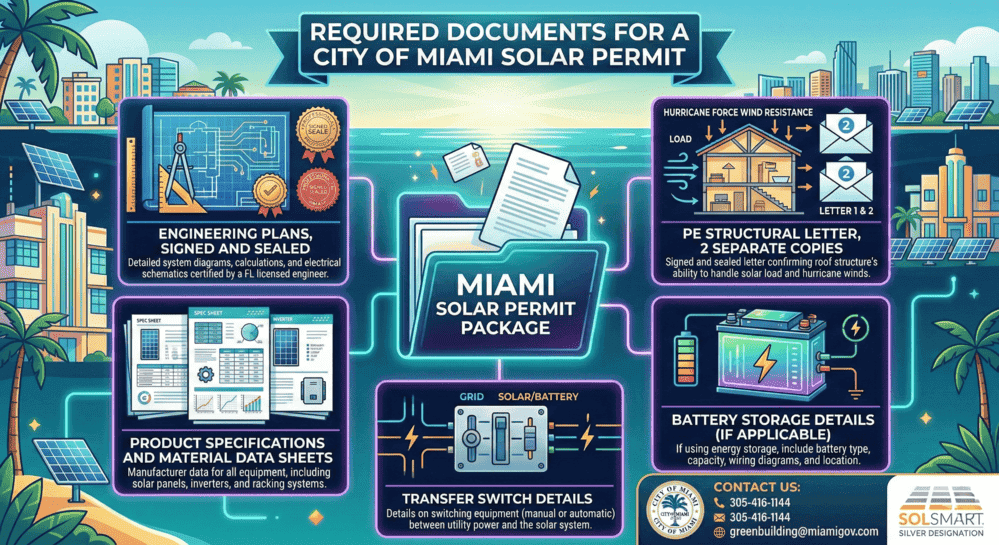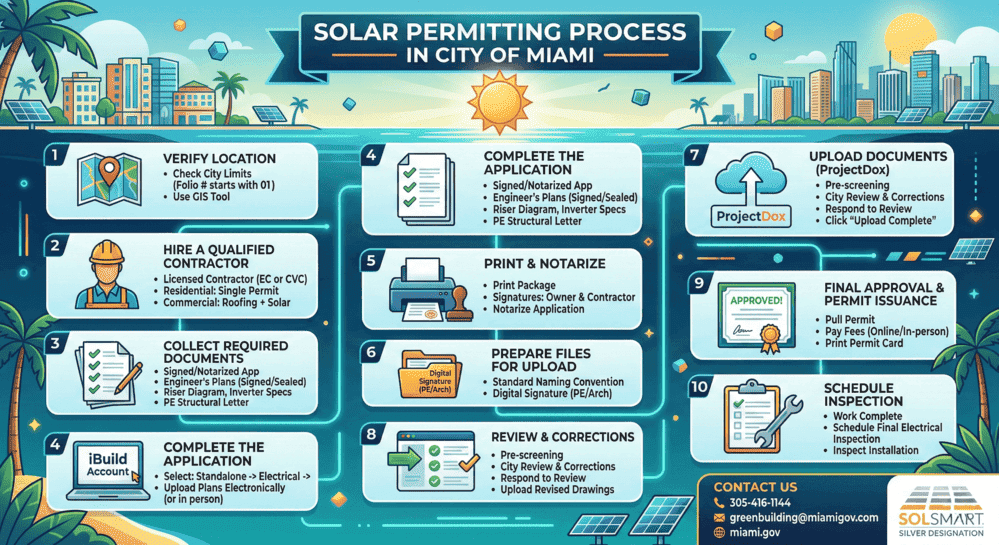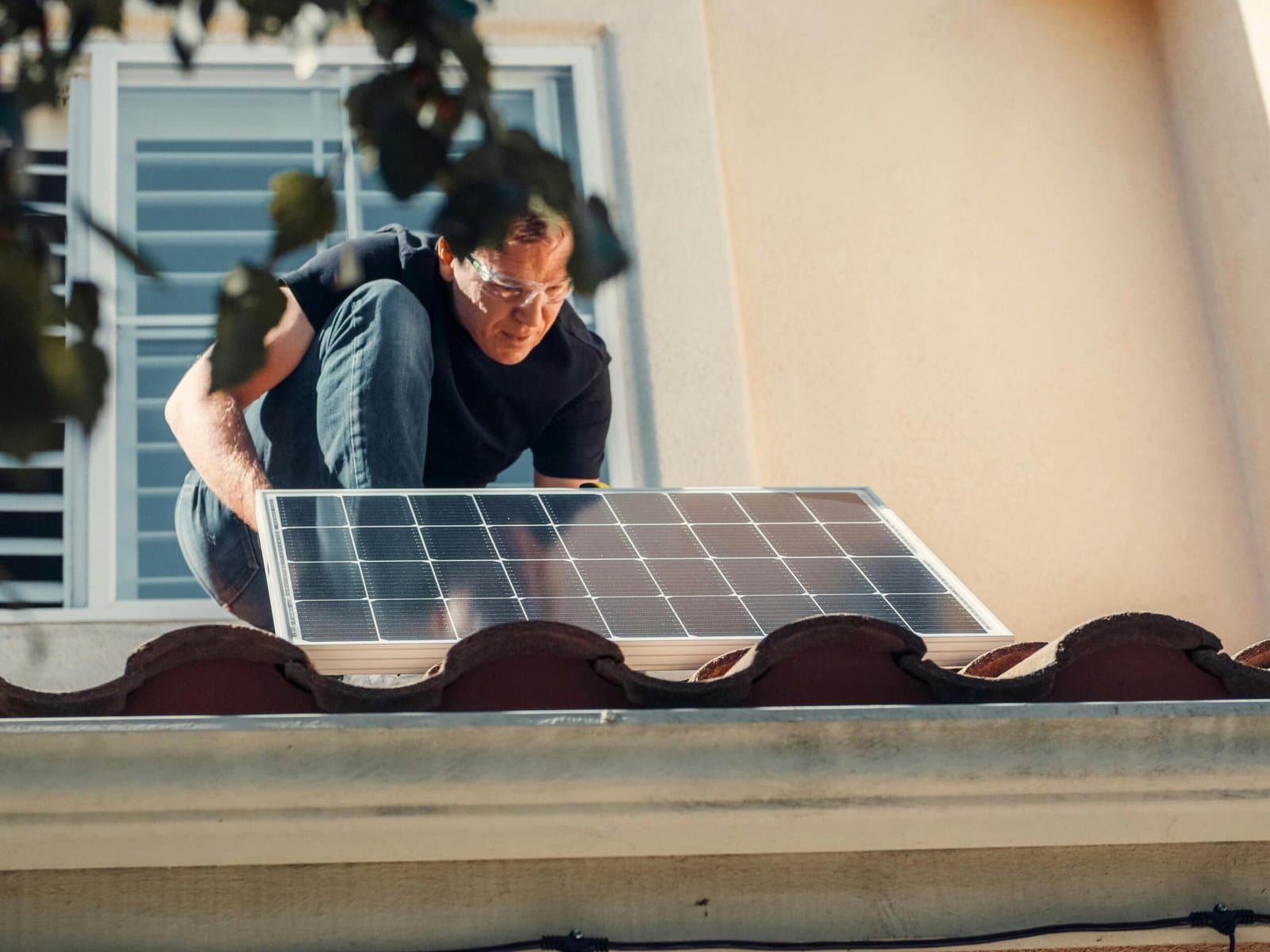Can you install solar panels yourself? Yes, DIY solar panel installation is possible, but it’s rarely recommended for residential rooftop systems due to legal, safety, and performance considerations.
DIY solar panel installation involves purchasing solar equipment kits and installing them yourself without professional help. While this approach can save 20-30% on installation costs (approximately $5,000-$7,000 on an average 8 kW system), it comes with significant drawbacks that often outweigh the financial benefits.
Key facts about DIY solar installation:
- Legal requirements: Most U.S. jurisdictions require licensed electricians or contractors to file solar building permits, even for DIY projects
- Cost savings: DIY can reduce labor (7%) and overhead (20%) expenses, totaling around 27% savings
- Safety risks: Involves dangerous rooftop and electrical work that can cause property damage or personal injury
- Best applications: Off-grid systems, RVs, boats, cabins, and portable backup power, not grid-tied home systems
- Professional installation benefits: Includes warranties, expert design, proper permitting, code compliance, and long-term support
- Average residential solar costs in 2024: Approximately $3.25 per watt, or $26,000 for an 8 kW system professionally installed.
The verdict: While DIY solar works well for small, off-grid applications, homeowners should nearly always hire certified professionals for residential solar design to ensure safety, legal compliance, optimal performance, and protection of their 20+ year investment.
This guide examines the complete pros and cons of DIY solar panel installation to help you make an informed decision about whether to tackle solar independently or work with qualified installers in your area.

DIY Solar Energy Systems Explained
Thanks to years of technological advancement, do-it-yourself solar energy solutions are now more attainable than they’ve ever been. Many suppliers provide complete kits containing all necessary components and step-by-step guidance for proper setup and functionality.
Typically, DIY solar setups operate independently, incorporating a charge controller (or regulator), battery storage, and an inverter. With the ability to produce, store, and distribute clean electricity, DIY off-grid solar systems serve as an excellent independent power solution for remote locations without grid access.

Weighing DIY Solar: Benefits and Drawbacks
Drawbacks of DIY Solar
Though advantages are often highlighted first, the disadvantages of DIY solar deserve primary attention. Before committing significant resources or energy to your project, evaluate these possible obstacles.
Regulatory Requirements: Installing permanent solar panels may require official licensing. Regulations differ by location, but licensed electricians or contractors are nearly always mandatory for solar building permit applications throughout the United States. Since municipal codes exist to protect system safety, bypassing proper permitting procedures for DIY solar can result in mandatory dismantling and financial penalties. In states like California, specific permit requirements and regulations add additional layers of complexity.
Safety Concerns: DIY installations carry multiple safety and property hazards that become more severe for individuals lacking solar installation expertise. Without expert supervision, you face potential damage to your roofing structure, equipment, property, and personal injury to yourself and others nearby. According to the U.S. Department of Energy’s solar permitting guidelines, residential solar projects demand more than a simple weekend’s work, requiring exceptional care before undertaking rooftop or electrical tasks.
Efficiency Challenges: DIY solar arrays need meticulous planning and execution to achieve peak performance. During the design phase, you must deliberately select solar panels, inverters, and additional components that integrate flawlessly, or face possible energy inefficiencies or system malfunctions.
Benefits of DIY Solar
Even with these obstacles, DIY solar installations offer practical advantages for numerous situations.
Financial Benefits: The biggest perk of DIY solar installation is eliminating costs typically associated with hiring companies or contractors. When you purchase components and handle installation yourself, you can cut many indirect solar expenses, which frequently account for more than half of residential installation costs.
Application Flexibility: DIY solar products are available in various configurations, including portable energy systems (PES). Though limited in power output and application range, PES may be ideal for property owners seeking adaptability and off-grid independence with emergency power for small electronics during utility failures. While DIY solar panels aren’t always ideal for residential properties, self-installed systems can effectively integrate renewable energy into other areas of your life, such as workshops, recreational vehicles (RVs), watercraft, or remote cabins.
Educational Value: Finally, constructing your own solar system can be fulfilling, teaching you practical skills and motivating others to follow suit. This proved true for René Voss (shown below), who created a comprehensive DIY solar installation guide.

Cost Analysis for DIY Solar Installation
Cutting indirect expenses represents the main advantage of DIY solar installation. While professional assistance may still be necessary for building permits or operational authorization, the DIY approach can significantly reduce various other costs.
Take an 8 kW residential solar energy system as an example. In 2024, residential solar averages approximately $3.25/W, bringing the total to roughly $26,000 when professionally installed. Though each situation differs, labor typically represents about 7% of total project costs, with overhead items like marketing, administration, and profit margins adding approximately 20%.
Under these conditions, a DIY solar panel installation could potentially save approximately $7,000 (27% of $26,000) in labor and overhead charges. Nevertheless, numerous additional factors warrant consideration with DIY installation, including property resale implications, unavoidable licensing and permit fees, and eligibility for the residential clean energy credit or additional solar incentives from programs like the Solar Energy Industries Association.
Solar Permit Solutions
DIY Solar? We Handle the Permits.
You install the panels — we design the permit-ready plan set your building department requires. Fast, affordable, all 50 states.
Value of Professional Solar Installation
While DIY solar panels require less initial investment, it’s crucial to evaluate long-term energy objectives before committing to installation strategies. Working with professional solar design services can expedite your design, permitting, and authorization procedures while ensuring compliance with local construction and electrical codes. Whether you need commercial solar design or residential solutions, professional expertise makes a significant difference.
Given that premium solar equipment functions for over two decades, certified contractors or companies can guarantee your system operates as intended. According to the International Energy Agency’s renewables report, properly installed solar systems deliver optimal performance throughout their lifespan. Should circumstances change, your installer can also provide ongoing support for maintenance needs or inquiries.
Beyond consumer-available options, professionals often have wholesale access or simplified procurement of premium solar energy equipment. Frequently, these components include warranties that remain valid only when installed by certified professionals.
Despite higher upfront expenses, the assurance and lasting advantages of professionally installed solar systems typically exceed the initial cost reductions or personal satisfaction from DIY endeavors.

When Professional Help Is Essential
While cost savings are appealing, DIY solar installations should generally be limited to smaller, off-grid applications. Before starting any DIY project, keep in mind that solar installation can be hazardous without proper training and potentially illegal when done outside regulatory guidelines. Resources like the SolSmart program provide guidance on best practices for solar installation.
Understanding the complete solar permit application process is crucial to safeguard your investment and property. Consulting professionals is almost always advisable when considering residential solar energy. Today, homeowners and industry experts worldwide rely on proven technology for secure, dependable, and effective operation across more than 150 countries, supported by organizations like the American Solar Energy Society.
For structural considerations, proper installation requires understanding solar panel tilt and structural load requirements, which professionals are trained to evaluate. Additionally, the EPA’s green power markets initiative provides frameworks for ensuring environmental compliance.
Conclusion
Deciding between DIY and professional solar installation ultimately depends on your specific situation, technical expertise, and energy goals. While DIY solar panels can offer meaningful cost savings and hands-on learning opportunities, they come with significant challenges including regulatory hurdles, safety risks, and potential performance issues that shouldn’t be overlooked.
For most homeowners considering rooftop solar systems, partnering with certified professionals remains the smartest choice. The expertise, warranties, and long-term support they provide typically justify the higher upfront investment. However, DIY solar still has its place, particularly for smaller, off-grid applications like RVs, cabins, boats, or portable backup systems where the stakes are lower and regulations less stringent.
Before making your final decision, carefully assess your technical capabilities, local permitting requirements, and long-term energy needs. Resources like NYSERDA’s solar guidebook and the U.S. Department of Energy Solar Energy Technologies Office can provide valuable information. Remember that solar panels are a 20+ year investment, and getting the installation right the first time is crucial for maximizing your returns and ensuring safe, reliable operation for decades to come.
FAQs
Will DIY solar installation affect my home’s resale value?
DIY solar installations can negatively impact your home’s resale value in several ways. Potential buyers and their inspectors may question the quality and safety of unpermitted or non-professionally installed systems. Many buyers prefer professionally installed systems with transferable warranties and documented compliance with local codes. Additionally, some mortgage lenders may refuse to finance homes with unpermitted solar installations, significantly limiting your buyer pool. Understanding how HOA regulations impact solar permits is also crucial for resale considerations. If you’re planning to sell your home within the next 10-15 years, professional installation is typically the better investment despite higher upfront costs. For more information, contact our solar permit experts or explore our blog resources.
DIY Solar? We Handle the Permits.
You install the panels — we design the permit-ready plan set your building department requires. Fast, affordable, all 50 states.
Frequently Asked Questions
Legal requirements vary significantly by location. While you can purchase and install solar equipment yourself, most jurisdictions in the United States require licensed electricians or contractors to file for solar building permits and connect systems to the grid. Some areas may allow DIY installation for off-grid systems but prohibit grid-tied installations without professional involvement. Always check your local building codes and utility requirements before starting any DIY solar project to avoid fines or mandatory removal.
Potential savings typically range from 20-30% of the total installation cost, primarily by eliminating labor and overhead expenses like marketing and administrative costs. For an 8 kW system costing around $26,000 professionally installed, you might save approximately $7,000 through DIY installation. However, these savings can be offset by factors such as reduced resale value, potential ineligibility for certain incentives or warranties, higher equipment costs without wholesale access, and possible mistakes requiring costly repairs or reinstallation.
The primary risks include personal safety hazards from working on rooftops and with electrical systems, potential roof damage from improper mounting, fire hazards from incorrect wiring, system underperformance due to poor design or installation, voided equipment warranties, legal penalties for unpermitted work, and difficulty selling your home if the system wasn't professionally installed. Additionally, DIY installers often lack access to the same quality equipment and support that professionals receive, which can impact long-term system reliability.
DIY solar works best for small-scale, off-grid applications where regulatory requirements are minimal and safety risks are manageable. Ideal projects include portable solar systems for camping or emergency backup, solar installations for RVs and boats, small cabin or shed solar setups, solar charging stations for tools or devices in workshops, and low-voltage garden or outdoor lighting systems. These applications typically don't require building permits, involve smaller components that are easier to handle, and present fewer safety concerns than full residential rooftop installations.
DIY solar installations can negatively impact your home's resale value in several ways. Potential buyers and their inspectors may question the quality and safety of unpermitted or non-professionally installed systems. Many buyers prefer professionally installed systems with transferable warranties and documented compliance with local codes. Additionally, some mortgage lenders may refuse to finance homes with unpermitted solar installations, significantly limiting your buyer pool. If you're planning to sell your home within the next 10-15 years, professional installation is typically the better investment despite higher upfront costs.
SPS Editorial Team
Solar Permit Solutions
Solar Permit Solutions provides professional solar permit design services for residential, commercial, and off-grid installations across all 50 states. Our team ensures permit-ready plan sets delivered fast.
Related Articles

How To Get A Solar Permit In San Francisco: DBI, PG&E And Fees Explained (2026)
San Francisco solar permits require two separate approvals before your system ca...

Bifacial Solar Panel Installation And Permitting Guide
Bifacial solar panels generate 10 to 30 percent more energy than traditional mon...

Solar Permit in Miami, FL: City of Miami vs. Miami-Dade County (2026)
Getting a solar permit in Miami requires two separate processes depending on jur...
